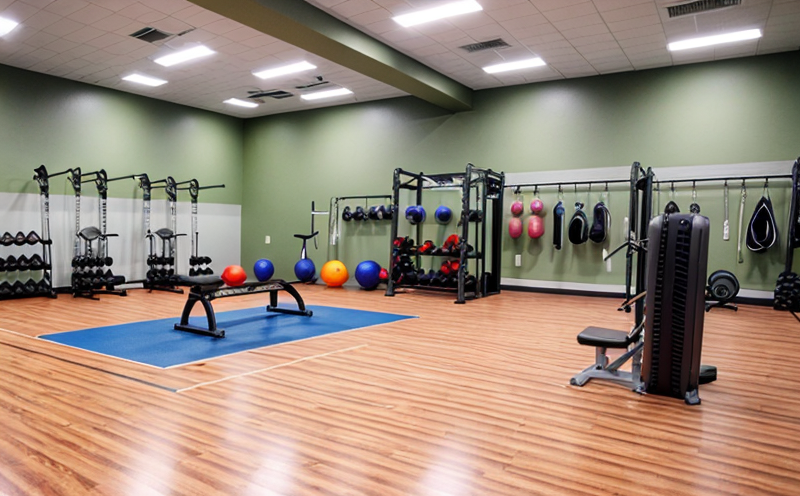Stability Testing of Treadmills and Elliptical Trainers
The stability testing of treadmills and elliptical trainers is a critical component in ensuring the safety and performance of these fitness equipment. This service is designed to evaluate how well these machines maintain their position and balance during operation, especially under varying conditions such as different speeds or incline levels.
Stability is crucial because it affects user safety and comfort. A stable treadmill or elliptical trainer prevents accidental tipping over, which could lead to serious injury. The testing process involves simulating real-world use scenarios where the equipment might be subjected to sudden changes in speed or direction. This ensures that even if a user makes an unexpected move while operating the machine, it won't lose balance and tip over.
Our laboratory adheres strictly to international standards such as ISO 8125:2017 for treadmills and ISO 9372-1:2016 for elliptical trainers. These standards provide a framework for how stability should be measured and tested, ensuring that our results are universally accepted by regulators around the world.
During testing, we use specialized equipment to apply controlled forces in various directions while monitoring the machine's response. This includes measuring lateral tilt angles as well as observing any shifts in position over time. We also test for resistance against tipping under different loading conditions and at varying speeds.
The data collected from these tests is then analyzed meticulously by our team of experts who specialize in biomechanics, electrical engineering, and materials science. From this analysis, we generate detailed reports that highlight any areas where improvements can be made regarding the stability of the treadmill or elliptical trainer.
Our service caters to a wide range of clients including manufacturers looking to meet regulatory requirements before bringing their products to market; retailers who want assurance that they are selling safe and reliable equipment; as well as consumers seeking peace of mind knowing that the equipment they purchase has been rigorously tested for stability.
By partnering with us, you can rest assured that your product meets or exceeds all relevant safety standards. Our commitment to accuracy, precision, and thoroughness ensures that every piece of equipment we test is fit for purpose – whether it's destined for commercial use or personal fitness.
Scope and Methodology
- Testing lateral stability under various operating conditions including different speeds and incline levels.
- Evaluating resistance against tipping during operation with simulated user movements.
- Metric analysis of tilt angles using precision instruments to ensure compliance with international standards.
- Data collection and report generation detailing the results of each test conducted.
International Acceptance and Recognition
The stability testing of treadmills and elliptical trainers is widely recognized across international boundaries. Compliance with global standards such as ISO 8125:2017 for treadmills and ISO 9372-1:2016 for elliptical trainers ensures that the results are accepted by regulatory bodies worldwide.
- ISO 8125:2017 specifies requirements for electrical safety in general-purpose household appliances, which includes treadmills. It covers aspects like insulation resistance and protection against electric shock.
- ISO 9372-1:2016 provides guidelines on the performance and durability of elliptical trainers. It focuses on mechanical stability during operation to prevent tipping over.
Use Cases and Application Examples
The application of our stability testing service extends beyond just compliance with regulations; it also plays a vital role in the development process for new products. Manufacturers can use this data to refine their designs, ensuring that users have an enjoyable and safe workout experience.
For retailers, having access to these test results provides them with confidence when marketing their product lines. They know they are selling equipment that has been thoroughly evaluated by experts in the field.
A practical example would be a manufacturer releasing a new model of treadmill with advanced features like an adjustable incline and decline feature. Before launching it into the market, they undergo rigorous stability testing to ensure that all these functions work together seamlessly without compromising on safety.





